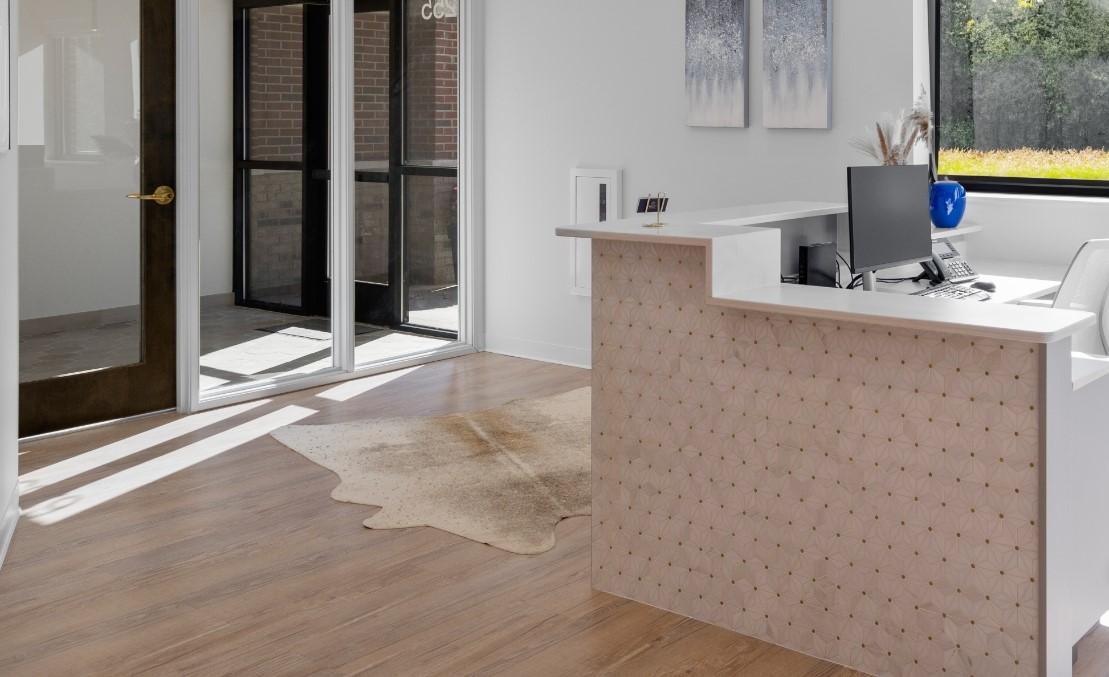Quick Links

What Is Arthrocentesis Surgery?
Pain or swelling of the joints can happen for several reasons, including other conditions like rheumatoid arthritis, gout, and tendonitis. Arthrocentesis surgery can provide powerful relief for people struggling with these conditions. This allows us to tackle the issue with minimal invasion of the body. Arthrocentesis surgery is a procedure that allows us to drain extra join fluid from the area of concern, leading to decreased swelling and discomfort. We can use this technique on multiple areas of the body, including the soldiers, elbows, ankles, knees, and wrists. This surgery can also help us diagnose certain conditions.
Adam Eidson, DDS, FACS
Board Certified Oral and Maxillofacial Surgeon
As a top Oral and Maxillofacial Surgeon, he’s board-certified and a Fellow of leading surgical associations. Co-founder of TruForm Surgery, Dr. Eidson, a Grand Haven, Michigan native, served as a Major in the US Army, specializing in jaw disorders and trauma cases. With a Dental Surgery degree from the University of Michigan, he brings a simple, compassionate approach to oral and maxillofacial health.
Learn More
Who Is a Candidate for Arthrocentesis Surgery?
Not everyone can be an ideal candidate for arthrocentesis surgery. Ideal candidates are people who are struggling with significant discomfort due to fluid buildup in one or more of their joints. Candidates should be relatively healthy and should be prepared to stop smoking before the procedure, if they smoke. Candidates should also be open with us about their medical history and their expectations so we can make sure that arthrocentesis surgery is the appropriate option for you.
What to Expect During an Arthrocentesis Surgery Procedure
Before the day of the procedure, we’ll make sure to give you all the information you need on how to be prepared. We’ll likely ask you to stop taking certain medications, especially ones that increase the risk of bleeding. We’ll also discuss risks with you in your consultation so you can arrive feeling confident in your decision. However, this is a very safe procedure.
We usually use local anesthesia, meaning you’ll be awake but shouldn’t experience significant pain. Once the anesthetic has taken effect, we’ll insert a needle into the area of concern. We’ll carefully draw fluid out of the joint and, in some cases, we’ll send it to a laboratory so it can be tested. This can help patients determine the cause of the fluid buildup.
Sedation
Dr. Eidson offers a wide variety of sedation techniques including local anesthesia (numbing injections), laughing gas (nitrous oxide) and IV sedation. Most patients are candidates for sedation. At your consultation appointment, we will review your medical history and medications to discuss the safest and most comfortable option for your specific needs.
Arthrocentesis Surgery Aftercare
We’ll give you a thorough plan for recovery so you can be as comfortable as possible after you get home. We’ll bandage the area from which we drew fluid, and it should stay in place for at least one full day. Some minor bleeding is not uncommon. We’ll give you an antibiotic to prevent infection. It’s important to keep your head elevated, even when you’re at rest, for the day after the procedure. Some swelling and bruising might occur, but any pain can usually be managed with ice packs.
Frequently Asked Questions
What is Arthrocentesis Surgery?
How long is recovery from Arthrocentesis Surgery?
Are you awake during Arthrocentesis Surgery?
What conditions are commonly treated with TMJ arthrocentesis?
How successful is TMJ arthrocentesis in relieving pain and improving jaw function?
What are the risks associated with TMJ arthrocentesis?
How long does it take to recover from TMJ arthrocentesis?
Can TMJ arthrocentesis be repeated if symptoms return?
What is TMJ arthrocentesis and when is it recommended?
How is TMJ arthrocentesis performed?
What are the benefits of TMJ arthrocentesis compared to other TMJ surgeries?
What can I expect during recovery from TMJ arthrocentesis?
Are there risks or complications associated with TMJ arthrocentesis?
Schedule a Consultation
At TruForm Surgery, we take our patients’ stories very seriously. We want to hear about what you’ve been struggling with so we can make sure that you’re on the right path to relief and comfort. If you’re interested in learning more about arthrocentesis surgery, contact us at our office in Brighton, MI.
Dr. Eidson, a Grand Haven native, earned his undergraduate degree from Hope College before completing dental school at the University of Michigan, where he discovered his passion for oral surgery. He trained for five years in Philadelphia as an oral and maxillofacial surgeon, specializing in anesthesia, facial trauma, corrective jaw surgery, dental extractions, implants, and TMJ disorders. A former US Army Major, he treated soldiers with complex jaw and facial conditions. Now residing in Brighton with his wife and daughter, Dr. Eidson enjoys running, basketball, golf, and time with family.











